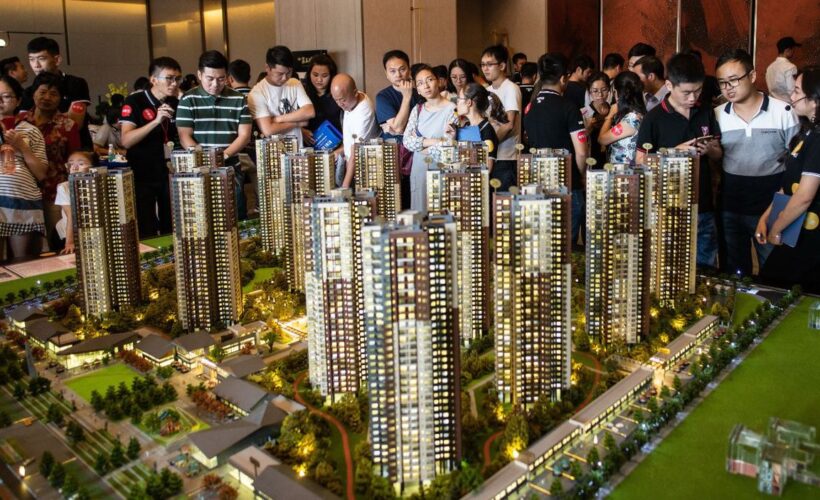
China’s housing market is showing indications of recuperation after the Covid emergency and experts state that offers security investors open doors as engineers financially recover.
“Urbanization and upgrading are key interest drivers. Property costs are recovering and engineer productivity is improving,” Hayden Briscoe, head of fixed income for Asia Pacific at UBS Resource The board, said in a briefing on the association’s mid-year standpoint prior this month.
Briscoe said the firm is positive on bigger engineers, which are growing market share as littler players leave the industry. Business property, notwithstanding, ought to be stayed away from as it could be facing descending rental weight because of the flare-up, he said.
Ratings goliath Moody’s said industry union will continue in the following 12 to year and a half. The organization said it expects its “evaluated designers will continue to outflank the overall market due to their solid deals execution capacities and branding. They will increase their market share as more vulnerable engineers are constrained out of the market.”
Housing deals in the nation plunged at the beginning of the pandemic as China’s economy shut down. Be that as it may, official information pointed to a recuperation in exchanges as the nation resumed. Not only this China lagging behind India in Software Industry also.
Property deals by floor region hopped 9.7% in May, contrasted and a 2.1% fall in April, according to Reuters. Assets raised by China’s property designers fell 6.1% in the January to May period, contrasted with a 10.4% drop for the initial four months of 2020, the report said.
“China’s recuperation will profit Asian high return securities straightforwardly as a lot of the Asian high return universe is near half,” Briscoe included.
On Thursday, Blackrock’s Head of Asian Credit Neeraj Seth additionally said he was “positive” on high return bonds in Chinese real estate.
“We do like a portion of the more grounded names, we are glad to expand our general spread span and term hazard on those. Overall, China is a significant piece of Asian high return markets, and we’re positive on Chinese high return, and most explicitly, Chinese real-estate high return,” he told CNBC’s “Cackle Box Asia.”
High return securities, or what are generally known as garbage securities, are non-investment grade obligation protections that convey a high default hazard, and therefore, as a rule accompany higher interest rates to make up for that hazard. Such instruments convey a FICO score of BB+ or lower by Fitch and Standard and Poor’s, or Ba1 or beneath by Moody’s.
China’s property designers are among the greatest garbage bond backers in Asia, with issuance totaling $46.23 billion a year ago, twofold that of 2018, according to Refinitiv information. In June, 13 designers gave seaward bonds totaling $3.8 billion, up from $944 million in May, according to Moody’s information.
Yet, a year ago China encountered a large number of corporate security defaults, raising worries about the dangers in its high return security market.
Macrolink Holding, for instance, turned into the primary designer in the nation to default on its bonds this year due to the Covid pandemic.
Be careful air pocket hazard
Investigators likewise caution that there could be a property bubble as the market continues to recoup.
Deutsche Bank in a note a week ago cautioned that the current condition of enormous financial boost and high credit development “verifiably have prompted property market overheating.”
Japanese bank Nomura, as well, cautioned of a “potential property bubble” in a Thursday note. It refered to rising property value inflation across 70 Chinese urban communities, inching up 0.6% month-on-month in June, up from 0.5% in May. The quantity of urban areas experiencing “consecutively higher” costs additionally rose from 57 to 61, it said.
“As of late reported tightening measures by some neighborhood housing specialists, including in Shenzhen and Ningbo, reflected rising policymaker worries over a potential property bubble,” Nomura composed.
Shenzhen reported new limitations on home buys a week ago in an endeavor to control hypothesis in the midst of forcefully rising costs, according to Reuters. Resale home costs rose 12% in May from a year sooner — the second-most elevated gain among 70 significant urban communities in China — the report stated, citing official information.
source : Marketing To China

